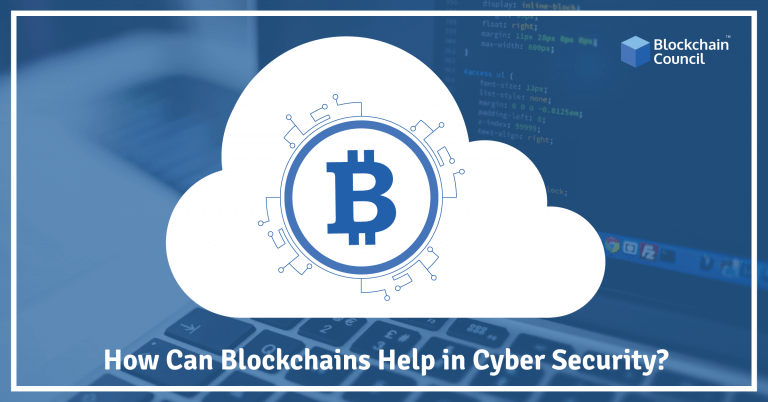
- Toshendra Kumar Sharma
- March 19, 2018
The past two decades have seen most significant businesses employ the internet in one capacity or the other to improve their services. From facilitating transactions and sharing information, to storing sensitive private information, the internet has become an indispensable tool for commerce in today’s world. Making all of these systems secure, however, remains a big challenge for these businesses as is evident from the frequent security breaches that they suffer. Health records, social security numbers, and credit card information, all of these records have been stolen numerous times in the last couple years. Therefore, it is necessary to look at all the different ways in which we can use emerging technology like the blockchain to help improve the existing cybersecurity of the current system.
Why Use Blockchains for Cyber Security?
Blockchains are essentially distributed databases that network participants operate and maintain. In fact, a blockchain is a decentralized, digitized, public and shared ledger of information that is resistant to tampering. This could have several potential applications in the field of cybersecurity as blockchains have a protocol for ensuring consensus which prevents them from various network attacks. A consensus mechanism like Proof of Work ensures that people cannot modify the data stored in the ledger, therefore, increasing operational data resilience. The most significant testament to the efficacy of this mechanism is the success of the Bitcoin blockchain, which has been functioning successfully for the last ten decades. No hacker group or rogue government agency has been able to hack the Bitcoin ledger in the previous ten years. This makes it a good store of valuable private information like health records and social security numbers. With the development of Smart Contracts and Multi Sig Wallets in blockchain platforms like Ethereum, users get even more control over how their private information is stored and dissipated. Using digital signatures to manage private information over the blockchain ensures that only people who are authorized to view the information can do so.
The recent Equifax hack is the most significant cautionary tale in this regard. People have trusted Equifax with their private credit history and social security numbers for several years now. But the way in which they handled their recent security breach was very problematic for their users. Users were kept in the dark about the data breach for several months after the hack was first discovered while the top Equifax officials sold their equity. There are projects in the cryptocurrency space like Civic that are working to rectify this exact problem by offering to store private information on the blockchain. With the Civic platform, people no longer have to rely on third-party middlemen like Equifax to manage their personal information. They can choose to get verified by Civic and after that use their app to share their information with employers or banks as they find necessary. Throughout their entire process, their data remains secure and resistant to tampering on the blockchain while they hold full control over who gets to access it.
Taking the Human Component Away from Security
Centralized architecture for managing and securing passwords remain one of the most significant weaknesses of traditional authentication systems. The reality remains that most human beings are not great at handling high-security passwords and keeping them safe. Therefore, regardless of how much resources the corporations spend on their security systems, humans remain the weakest link in the cybersecurity framework of corporations. Blockchains can help in this regard by automating the authentication process of system logins. With blockchains, a security system could make use of a distributed public key infrastructure based on the blockchain to authenticate devices. This would ensure that only authorized personnel could get access to the databases that store sensitive information.
Making Cyber Storage Safer
Blockchains have provided us with a unique way to safely store data on a network. With blockchains, if an attacker tries to tamper a block, the protocol recognizes that the block doesn’t conform with the rest of the blockchain and simply rejects it. Further, since in a public blockchain all of the transactions are visible to everyone, it is very easy to track the source of any malicious activity by matching public keys. In this way, security is ensured without relying on a central authority.





































































 Guides
Guides News
News Blockchain
Blockchain Cryptocurrency
& Digital Assets
Cryptocurrency
& Digital Assets Web3
Web3 Metaverse & NFTs
Metaverse & NFTs
